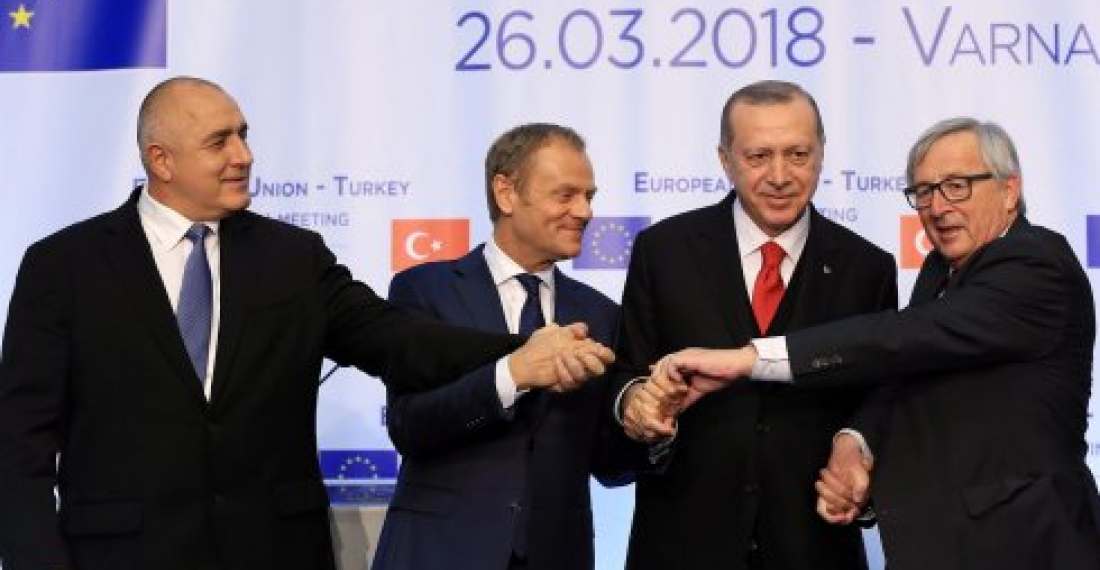The European Union and Turkey held a successful summit in the Bulgarian Black Sea port of Varna on Monday (26 March) with both sides emphasising the positive aspects of the relationship.
European Council President Donald Tusk, European Commission President Jean Claude Juncker and Bulgarian Prime Minister Boyko Borisov representing the current Bulgarian Presidency of the EU met with Turkish President Recip Tayip Erdogan at a time when relations between Turkey and the EU appear strained. But as both sides emphasised in a press conference at the end of the summit, Turkish-EU relations are not about a single issue but a whole spectrum of topics ranging from hard security to humanitarian action.
Turkey is also a candidate for EU membership - and the issue always raises emotions on both sides. As president Juncker put it "until now, there is no other decision than to promise to ensure that Turkey's accession to the European Union is achieved in due course." Juncker added, "I am against this simple, superficial, sometimes demagogic and populist idea that we should break the accession negotiations with Turkey", adding that he was a guarantor of the committments that the EU had made to Turkey.
On his part president Erdogan said that Turkey hopes the difficult period will now be left behind."I hope that we together have taken the first step of restoring confidence between the EU and us today, but it is not enough to say that we took this step; it has to be taken in concrete terms," said Erdogan. "We hope that we have left a difficult period in Turkey-EU relations behind," he said.
Clearly there remain many issues on which the two sides do not see eye to eye, including Syria, Cyprus and governance issues in Turkey itself.
Jean Claude Juncker described the discussions as "frank and open", which in diplomatic discourse is often a term used for a difficult set of discussions. However no one was expecting the meeting to be easy, so the positive tone at the end of the meeting can be a sign that Varna was an important turning point.
source; commonspace.eu with agencies
photo: The EU troika with the President of Turkey at the end of a summit in Varna on 26 March 2018 (picture courtesy of Anadolu News Agency)






